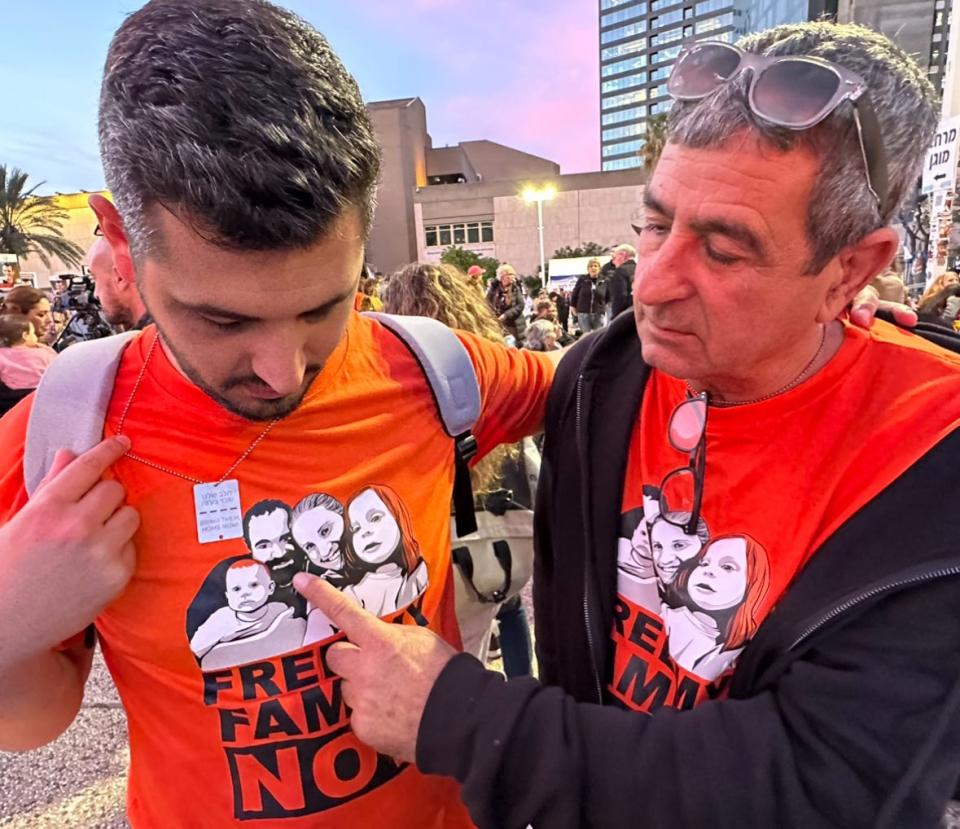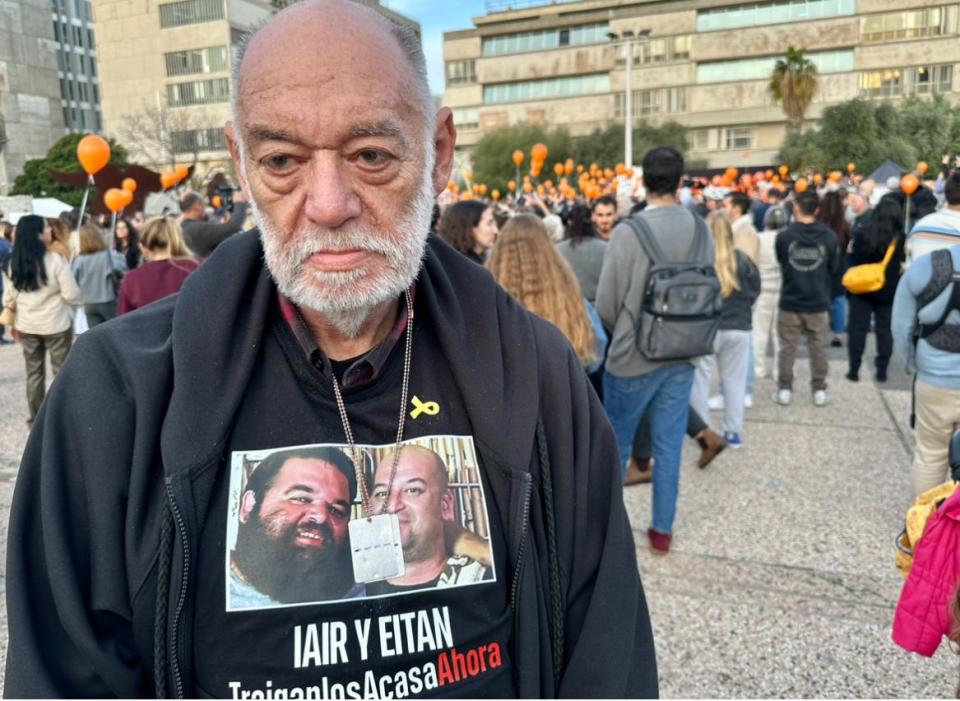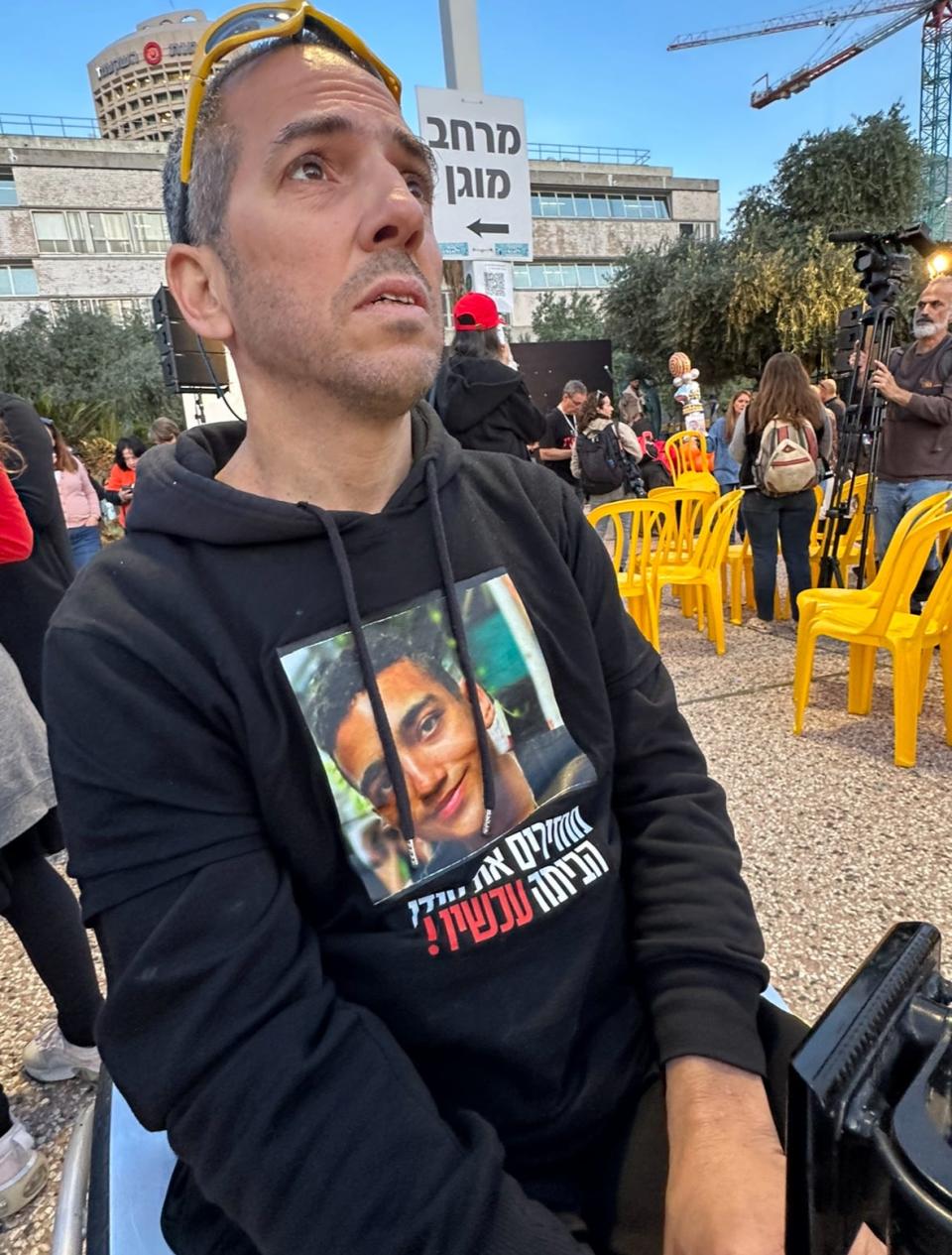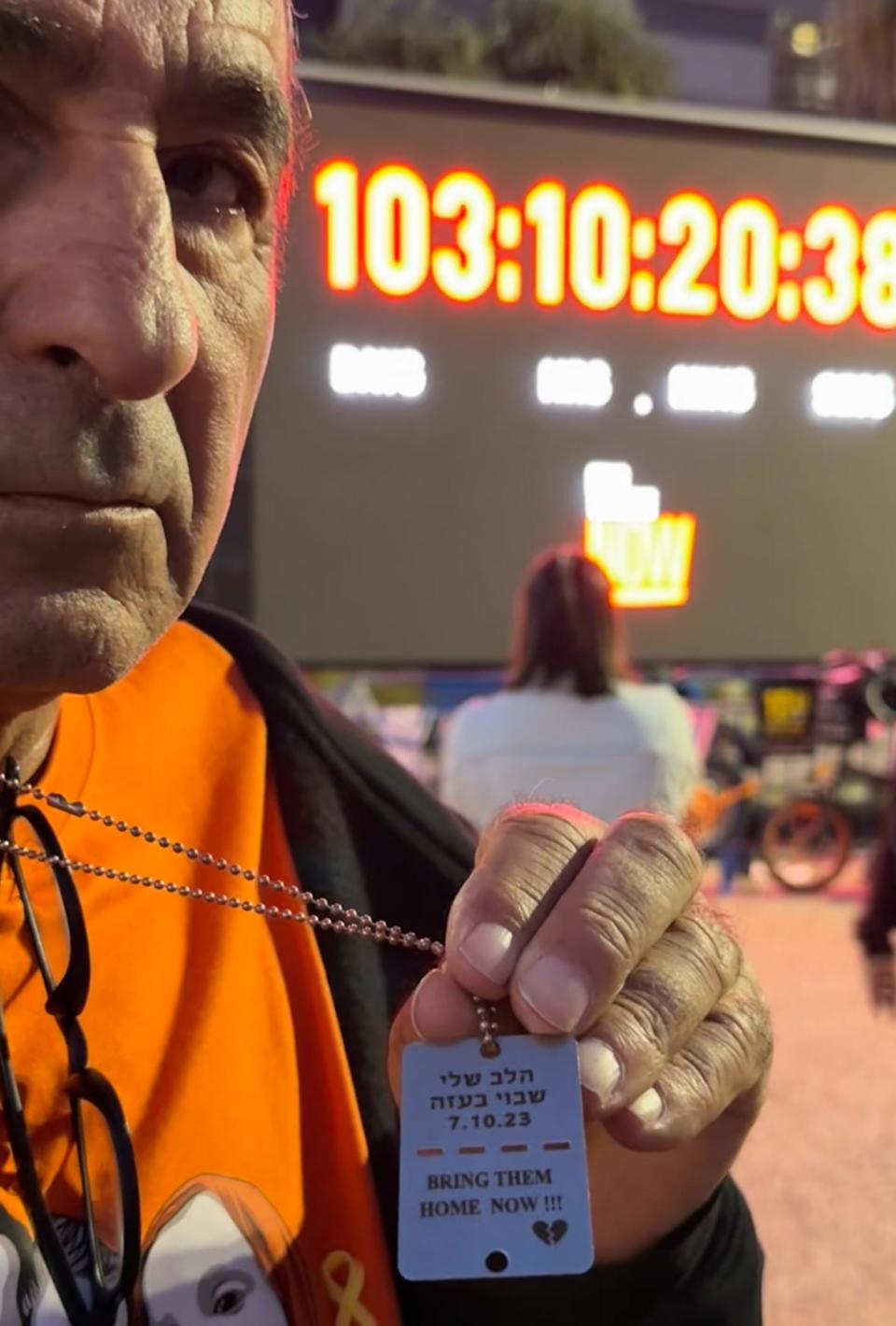Mark Patinkin in Israel: In Hostage Square, they gather and hope for loved ones' return
The image to me is a symbol of Oct. 7 – a young woman named Naama Levy dragged by Hamas men into a car, bleeding between her legs, with her hands zip-tied and her ankles slashed.
It’s why I reached out to speak with her mother, Ayelet, and at first she said yes, hoping each bit of publicity could help. But as the day approached, she apologized; she was emotionally spent and needed time apart. As a journalist, you wish for an interview, but often, when someone can’t speak about a thing, it says more than if they could.
It happened again with three other families of the kidnapped. I at first got a yes, but, shortly before, they couldn’t do it. The toll of 100 days had drained them.
And so I went to Hostage Square.
It’s the now-famous plaza in the heart of Tel Aviv where, once or more a week, thousands gather asking to bring the missing home.
This was such a day – a huge crowd drawn there for a poignant milestone. A hostage was marking an important birthday in captivity. His name is Kfir Bibas. It was his first birthday. He is the youngest of the taken. He has been gone a third of his life.

Speakers on a stage were addressing the crowd in Hebrew. I didn’t understand the words, but I didn’t need to. More than one began to weep and had to pause.
I walked to the back of the crowd, and, after a few minutes, randomly approached a 70-ish couple named Mickey and Ronit. They do not know any hostages personally, but they come here once a week as a way of saying the kidnapped are remembered. A few days before, a group had gathered at the Gaza border with megaphones to shout a similar phrase across the fence: “You’re not alone.” That is how people in Israel are coping with this.
I spotted an older gentleman in a black T-shirt printed with the faces of two of the missing. They are both young men; at least you hope the word “are” is still true. But you don’t know. Nobody here does.
I asked the man if he had connections with the two men on the shirt.
Yes. He knows them well. They are his sons.
We were standing by a long table with more than 100 empty chairs. There was a place-setting in front of each. Some of the chairs were wrapped in barbed wire. Someone had set red paper butterflies near each of the plates, and the symbolism was clear. If only.
The father in the T-shirt is named Itzik Horn, pronounced like Isaac. His boys are Iair, 45, and Eitan, 37. They were taken into Gaza from a kibbutz called Nir Oz. Forty-six people were slaughtered there. Scores were kidnapped, Itzik’s boys among them.
I asked Itzik how he is doing.

In accented English, he simply said the word “impossible.”
A later video came out showing his sons alive in a Gaza tunnel. They didn’t seem to be wounded. That’s Itzik’s only solace. But no one knows what’s happened since then.
Talking about it seemed painful to him. I asked if he’s been able to sleep. Itzik gave a look as if to say I should know the answer to that question. Indeed, his face was lined in a way that had to do with things other than his 71 years.
Itzik is now retired, but he had been a teacher and principal. I asked what his boys are like.
Both are still single, he said, and they love watching soccer. Both were strong supporters of Palestinian rights.
Most of the massacred were the same. Hamas, Itzik said, targeted the people who were for peace.
Iair, the older brother, was in construction and helped run the kibbutz pub. Eitan worked with youth groups where he lived north of Tel Aviv. He’s also a singer and songwriter. He was visiting his brother when it happened.
I asked Itzik if there was a message he wanted to give.
Only to ask the American government to try to do … something.
Then he walked on, unable to talk of it any longer.
As I moved through the crowd, I spotted a man in a wheelchair who gave his name as Doron Zexer, 50. He was wearing a black T-shirt with the face of a young man over words in Hebrew that said, “Bring Edan home now.”
The young man’s full name is Edan Alexander. He grew up in Tenafly, New Jersey, and moved to Israel in 2022 with a Hebrew immersion program. Doron was his host father. Edan decided to stay, recently joining the Israeli Defense Forces. He’s now among the kidnapped. They took him at age 19 and he has since turned 20. Edan, said Doron, had just started a new love with a fellow soldier named Shira.

Doron looks upon Edan like a son, but he said he has a heart for every hostage, which is why he was here, and often is.
“If Edan came home tomorrow,” said Doron, “I would still come here every day until the last one comes home.”
I was about to leave when I saw a man wearing an orange T-shirt that said, “Free My Family Now.” The shirt had a drawing of a family of four. The man was also wearing a metal dog tag that said, “My heart was kidnapped in Gaza.”
His name is Eli Bibas, and it turns out he’s the grandfather of Kfir, the youngest hostage whose first birthday was being celebrated by these thousands.
As a reporter, I might have wanted to talk to Kfir’s parents, Yarden and Shiri, but I can’t. They were kidnapped, too. So was their other child, 4-year-old Ariel. The whole family is still gone. A drawing of the four of them was on Eli’s shirt.
At age 4 and age 1, Ariel and Kfir are the youngest hostages. The next-youngest is 18. It is a mystery why Hamas would keep a baby and a young child. Or maybe it isn’t.

Eli is retired now from a career as an air-conditioning tech. I asked him whether, after these three-plus months, it's gotten any easier.
If anything, he said, it's harder. With the focus now on Gaza casualties, he worries the world is forgetting the hostages.
Behind him was a huge digital clock. The reading on it was 103 days, 10 hours, 20 minutes and 37 seconds.
You stand there and look as it continues the count – 38 seconds, 39 – and you wonder if it will reach another 100 days before this is over, or even 1,000.
The latest: Israel rejects Qatar efforts for cease-fire; US pushing for new hostage deal
For a brief moment, the grandfather of the youngest hostage glanced at the clock.
Then he and other family members walked off and were soon lost in the crowd.
Mark Patinkin is traveling to Israel personally and is not sponsored by or affiliated with any organization. He will report firsthand from the region as he has done for the last four decades through his award-winning journalism. He can be reached at mpatinki@providencejournal.com.
This article originally appeared on The Providence Journal: Family members hope for loved ones' return in Israel's Hostage Square

